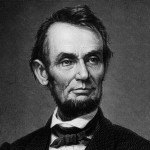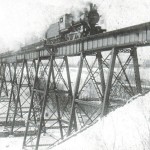congress
 Imagine a world without income taxes. I’m sure a lot of us would love to do just that. I don’t know what the taxes are called in other nations, but suffice it to say that the name doesn’t mean a thing…it’s still a tax, and it still has to be paid. In the United States…for many years, there was no income tax, at least not until August 5, 1861, when President Lincoln imposes the first federal income tax to help pay for the Civil War costs. The tax started when President Lincoln and Congress agreed to impose a tax of 3% on annual incomes over $800.00. I’m sure that the people were as unhappy about that as we would be today about gun control. The whole thing seemed unfair and for many unconstitutional.
Imagine a world without income taxes. I’m sure a lot of us would love to do just that. I don’t know what the taxes are called in other nations, but suffice it to say that the name doesn’t mean a thing…it’s still a tax, and it still has to be paid. In the United States…for many years, there was no income tax, at least not until August 5, 1861, when President Lincoln imposes the first federal income tax to help pay for the Civil War costs. The tax started when President Lincoln and Congress agreed to impose a tax of 3% on annual incomes over $800.00. I’m sure that the people were as unhappy about that as we would be today about gun control. The whole thing seemed unfair and for many unconstitutional.
The constitutionality of a federal income tax, was something President Lincoln checked into thoroughly, and I’m sure that it was the last thing he wanted to do, because that kind of thing can be  political suicide, and in this case…I have to wonder if it played a part in Lincoln’s assassination, although it was said that John Wilkes Booth killed him because he disagreed with his stance on slavery.
political suicide, and in this case…I have to wonder if it played a part in Lincoln’s assassination, although it was said that John Wilkes Booth killed him because he disagreed with his stance on slavery.
Sometime, around March of 1861, Lincoln began to look at the government’s ability to wage a war against the South, and found that it was lacking. He sent letters to cabinet members Edward Bates, Gideon Welles, and Salmon Chase. Lincoln wanted to get their opinions as to whether or not the president had the constitutional authority to “collect [such] duties.” According to the documents, and their interpretations, which are now housed in the Library of Congress…Lincoln was very concerned about maintaining federal authority over collecting revenue from ports along the southeastern seaboard…as they might fall under the control of the Confederacy.

The Revenue Act was broadly written to define income as gain “derived from any kind of property, or from any professional trade, employment, or vocation carried on in the United States or elsewhere or from any source whatever.” The comparable minimum tax as of 2003 would have put the minimum taxable income at about $16,000. The Income Tax went into effect, and the Civil War was funded. Then in 1871, Congress repealed Lincoln’s tax law, but in 1909, they passed the 16th Amendment, which made Income Tax a permanent tax, and the one we use today. The 16th Amendment was ratified in 1913. Sometimes, I wish they hadn’t done that, but I suppose it is necessary, though maybe not always fair.
 When a United States president is assassinated, it sends shock waves around the world. When one is shot and lives, it sends waves of shock too…and then relief. I was a little girl when John F Kennedy was shot and killed on November 22, 1963, and I will never forget where I was when I found out about it. At the tender age of just seven years, I don’t really think that I fully understood the gravity of the situation. When President Ronald Regan was shot in the chest, on March 30, 1981, I was a married twenty five year old mother of two daughters, and I fully understood the gravity of the situation, and how it could have affected our nation and the world. It was however, the reason he was shot that totally baffled me. I mean, I know what John Hinkley Jr’s deranged reasons were, but it still made no sense to me…especially that he would think that somehow he would win Jodie Foster’s love by shooting the president. I suppose that is simply how the deranged mind works.
When a United States president is assassinated, it sends shock waves around the world. When one is shot and lives, it sends waves of shock too…and then relief. I was a little girl when John F Kennedy was shot and killed on November 22, 1963, and I will never forget where I was when I found out about it. At the tender age of just seven years, I don’t really think that I fully understood the gravity of the situation. When President Ronald Regan was shot in the chest, on March 30, 1981, I was a married twenty five year old mother of two daughters, and I fully understood the gravity of the situation, and how it could have affected our nation and the world. It was however, the reason he was shot that totally baffled me. I mean, I know what John Hinkley Jr’s deranged reasons were, but it still made no sense to me…especially that he would think that somehow he would win Jodie Foster’s love by shooting the president. I suppose that is simply how the deranged mind works.
In the years that the United States has been a nation, sixteen assassination attempts on our presidents. Of those, there have been four successful Presidential assassinations. They were Lincoln, Garfield, McKinley, and Kennedy. I really never thought there might have been that many attempts, but I can see that people get distraut with how things are going, and if they are at all unstable, they might attempt to shoot the president.
President Reagan’s shooting was probably one of the most strange, because he appartently didn’t feel the .22 caliber bullet that entered his chest, narrowly missing his heart, and hit his lung. There were three attendants with him, who were also hit. They were White House Press Secretary James Brady, Secret Service agent Timothy McCarthy, and DC police officer Thomas Delahaney. Hinkley was then overpowered and pinned against a wall. Reagan was shoved into the car and taken to the hospital for treatment. He made a complete recovery, which was amazing, considering that he was 70 years old at the time. He even insisted on walking into George Washington University Hospital under his own power. He was in good spirits and visiting with his wife, Nancy while waiting for surgery. He laughingly said, ”Honey, I forgot to duck,” and to his surgeons, “Please tell me you’re Republicans.”
The next day, he resumed some of his executive duties and even signed a piece of legislation from his hospital bed. He returned to work at the White House on April 11, 1981. He returned even more popular that he already was, and received a hero’s welcome by Congress. His highly successful economics plan was passed with several Democrats breaking ranks to back his plan. Nevertheless, President Reagan felt the effects of the shooting for years afterward. The other men eventually recovered, but James Brady suffered permanent brain damage and later became an advocate for the “Brady Bill” requiring a five day waiting period and background checks before the purchase of a gun, which was signed into law by President Bill Clinton. John Hinkley received a verdict of “not guilty by reason of insanity” bringing with it outrage among the people of this nation. He has been incarcerated at Saint Elizabeth’s Hospital since that time, but more recently has been allowed supervised home visits with his parents. I suppose that one day, he could be released, since they have said that his mental illness is in remission.
 In their early years, the railroads were quite powerful companies, and with good reason. The railroad reduced travel time across the United States from days or months, to hours, in many cases. They brought supplies, payroll, and people from back east to the west quickly. The railroad did not come without some confusion, however. Even as late as the 1880s, most United States towns had their own system for keeping track of time, based on where the sun was at high noon. I had never given much thought to this, but I suppose it could have been a big mess, since the train’s arrival would be very mixed up, and the end result would be that the train might be scheduled to arrive in several places at once.
In their early years, the railroads were quite powerful companies, and with good reason. The railroad reduced travel time across the United States from days or months, to hours, in many cases. They brought supplies, payroll, and people from back east to the west quickly. The railroad did not come without some confusion, however. Even as late as the 1880s, most United States towns had their own system for keeping track of time, based on where the sun was at high noon. I had never given much thought to this, but I suppose it could have been a big mess, since the train’s arrival would be very mixed up, and the end result would be that the train might be scheduled to arrive in several places at once.
Because the railroads were quite powerful, they took it upon themselves to make a monumental change that would affect the entire nation, and Canada too. At exactly noon on this day in 1883, American and Canadian railroads broke the continent into four sections, and began using a system of time zones that we still use to this day, with very few changes made to it over the years. I’m sure there were people who did not like the new system much, but most people quickly embraced it, because their lives depended on the railroad in one way or another. The root of the problem they had was that they moved passengers and freight over the thousands of miles the line covered. With the varying times in towns along the route, the train  ended up with dozens of different departure and arrival times. No one really knew when the train would arrive…except possibly the engineer. I’m sure that caused chaos in the train stations…especially in the bigger cities. These days, we have to be at the airport two hours early for flights, because of screening, so imagine that kind of a scenario in the small train stations of the old west. This scheduling nightmare had to be stopped, and time zones were the only logical way to do it.
ended up with dozens of different departure and arrival times. No one really knew when the train would arrive…except possibly the engineer. I’m sure that caused chaos in the train stations…especially in the bigger cities. These days, we have to be at the airport two hours early for flights, because of screening, so imagine that kind of a scenario in the small train stations of the old west. This scheduling nightmare had to be stopped, and time zones were the only logical way to do it.
With the use of time zones, rail transportation became far more efficient. The thing that seems rather odd, is that they didn’t go to the United States or Canadian governments to resolve the problem, and if the government at that time was as inefficient as our congress is right now, I can fully understand why they didn’t. Imaging waiting six years to make a decision concerning time and its vital role in rail travel. Something had to be done right away, and the railroad was just bold enough to do it. As it turned out, no one tried to stop them either. I suppose everyone could see just how logical their plan was, and no one complained. So, the railroad companies agreed to create four continental time zones, and that decision has changed the way we live to this day.
The lines they adopted to make those time zones were very close to the ones we have today. I’m sure that any changes are based on where towns began to fall along the zone lines. It wasn’t until as late as 1918 that Congress officially adopted the railroad time zones and put them under the Interstate Commerce Commission.  Just imagine, if you will, if the people and the railroad had waited for Congress to act on this matter. There would have been 35 more years of unorganized and frustrating railroad travel. Something that should have revolutionized travel, would have been relegated to the stone age again, because of Congress’ lack of action. Even after the system was implemented and people finally had an organized schedule, that was relatively accurate…because you can’t predict accidents or weather related delays very well, Congress sat on their hands, and I suppose they operated the government on government time instead. In this writer’s opinion, the time zones were a wonderful idea, and have benefitted this nation very well since 1883. My family has a long history of working on the railroad, and that is a fact that I am very proud of.
Just imagine, if you will, if the people and the railroad had waited for Congress to act on this matter. There would have been 35 more years of unorganized and frustrating railroad travel. Something that should have revolutionized travel, would have been relegated to the stone age again, because of Congress’ lack of action. Even after the system was implemented and people finally had an organized schedule, that was relatively accurate…because you can’t predict accidents or weather related delays very well, Congress sat on their hands, and I suppose they operated the government on government time instead. In this writer’s opinion, the time zones were a wonderful idea, and have benefitted this nation very well since 1883. My family has a long history of working on the railroad, and that is a fact that I am very proud of.

